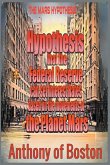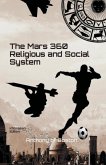Scientists often test the claims of astrology. Efforts to prove the claims, invariably, fall short. The one exception, according to backers of astrology, is the work of Michel and Fran?oise Gauquelin. Despite being strong critics of traditional astrology and horoscopes, the Gauquelins claim to find a correlation between the positions of planets in the heavens, the birth times of individuals, and eminence in their professional careers. They claim, for example, that there is a correlation between military men and Jupiter, scientists and Saturn, sports champions and Mars. Because the "Mars effect" is alleged to be the strongest evidence for planetary influence, several groups of scientists have attempted to replicate the claim independently. Michel Gauquelin's data is based primarily on French athletes. Dividing the sky into 12 sectors, he maintains that there is a stronger propensity for sports champions to be born when Mars is rising (1st sector) or culminating (4th sector). Seven distinguished French scientists, representing the French Committee for the Study of Paranormal Phenomena, have published a study in which they examine the birth data for 1,066 French sports champions culled from two leading Who's Who anthologies focusing on athletes. They find no statistical evidence for the claim that there is a Mars effect. Moreover, they attribute the so-called effect to selective bias on the part of the chief proponent of the claim, the late Michel Gauquelin (d. 1991), who had attempted to persuade them to add names to or delete names from their study. A publisher's preface, written by Paul Kurtz, provides background information on the significance of this study: "No inquiry has evoked more controversy between skeptics and astrologers than the efforts by the scientific community to test the claims of French authors Michel and Fran?oise Gauquelin . . . . This study . . . supports the thesis of skeptical investigators who find insufficient evidence for astrobiology." Among the contributors to this study are noted astronomer Jean-Claude Pecker (professor at the College of France and member of the Academy of Sciences), Evry Schatzman (former president of the French Physical Society and member of the Academy of Sciences), and Jan Willem Nienhuys (Dutch mathematician, who provides a detailed commentary on the study, concurring with its conclusion).
Hinweis: Dieser Artikel kann nur an eine deutsche Lieferadresse ausgeliefert werden.
Hinweis: Dieser Artikel kann nur an eine deutsche Lieferadresse ausgeliefert werden.








